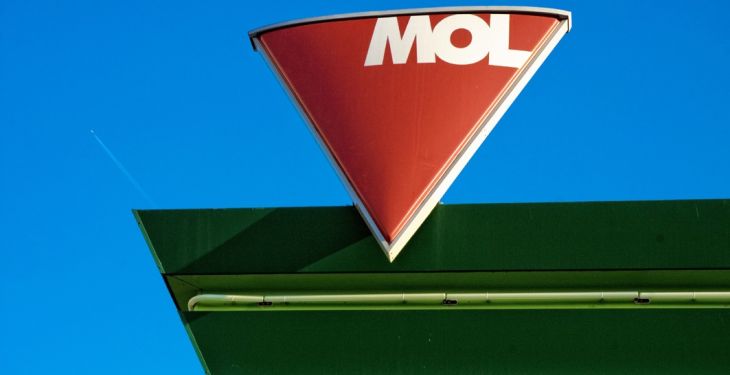Today MOL Group announced its financial results for Q2 and H1 2023. In the first six months MOL Group delivered USD 1,125 million EBITDA while in Q2 the EBITDA reached USD 411 million. Both Downstream and Upstream results were hit by worsening macro conditions and upheld massive government levies, including extra taxes and extra mining royalty fees. Moreover, 2nd quarter results were also distorted by a new revenue-based extra tax in Hungary amounting to USD 315 million for full-year 2023, recognised fully as a one-time expense in Q2. Consumer Services segment rebounded from last year’s lows and produced almost 43% of MOL Group’s total EBITDA, partly mitigating the effect of the adverse external environment. MOL Group sets its EBITDA guidance for full-year 2023 to approximately USD 2.5 billion.
“The macro environment was not good enough to counterbalance the negative effects of governments’ interventions in the CEE region that have no doubt left their marks on our results in the first half of the year and especially in the 2nd quarter of 2023. The current level of governments’ takes – unless these extraordinary measures are phased out in the near future – will deteriorate MOL Group’s competitiveness and burden our cash flow generation needed for our investment plans. Disregarding the negative external effects, MOL Group’s operational performance was robust, the businesses continued with their strategic investments and MOL Group also managed to launch its new waste management business line,” said Chairman and CEO of MOL, Zsolt Hernádi.
Upstream EBITDA declined to USD 99 million in Q2 2023 and came in at USD 382 million in H1 2023, representing 83% and 65% decrease in comparison with the same periods last year. Simplified free cash flow generation of the division practically disappeared in Q2 2023, due to the extra revenue tax and extra mining royalty levied by the Hungarian government, and decreasing hydrocarbon prices had a negative effect on the results as well. Oil and gas production volume dropped by 5 percent in Q2 year-on-year, as production in the Shaikan field in Iraqi Kurdistan has been halted due to the export pipeline shut throughout the quarter. As a result of the extraordinary efforts in line with MOL’s commitment to regional supply security, production in Hungary rose by 6.5% year-on-year in the quarter, bringing group-level H1 production volumes to 91.6 mboepd, well above the production guidance.
Downstream Q2 2023 Clean CCS EBITDA diminished to USD 102mn, while the half-year result amounted to USD 487mn. The significant decrease in the 2nd quarter was driven by extra taxes such as the revenue-based extra tax one-off expense, and the weak petchem margin combined with demand and price pressure. Motor fuel demand declined by 12% in Hungary compared to Q2 2022 since the price cap boosted consumption in the base period, while demand increased in other CEE countries, especially in Croatia (+8%); overall, total product sales remained flat for the Group.
Consumer Services Q2 2023 EBITDA almost quadrupled year-on-year, reaching USD 175mn, bringing the division’s H1 results to USD 301mn. Easing of the retail price cap regulations in the Central and Eastern European region, further expanding non-fuel contribution and excellent internal performance were the main drivers of the increased results. At the same time, Q2 2023 sales volumes increased by 16% year-on-year, supported by more than 200 million litres of positive inorganic impact of the Lotos acquisition in Poland, while fuel volumes sold increased in most countries except Hungary, where demand normalised after the cancellation of price caps. The number of Fresh Corner sites rose to 1,180 in Q2 2023 from 1,103 in the same period last year.
Gas Midstream EBITDA rose significantly year-on-year in Q2 2023 to USD 60 million as cross-border capacity demand have strengthened, bringing H1 results above USD 139mn. Due to the lower gas purchase prices than in the same period last year, decreased operational costs also contributed to the good results.
